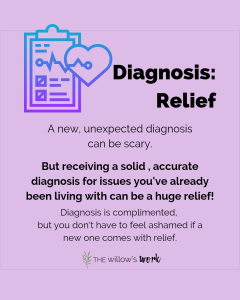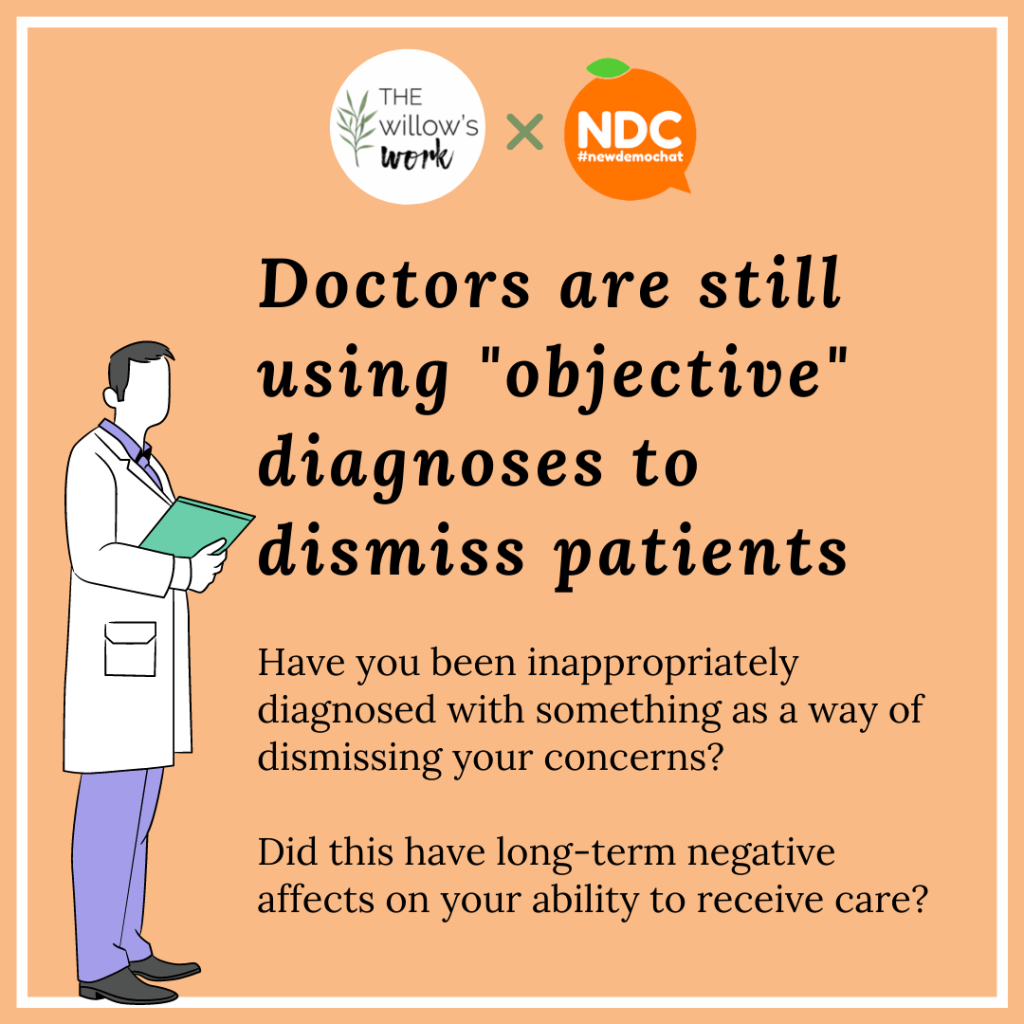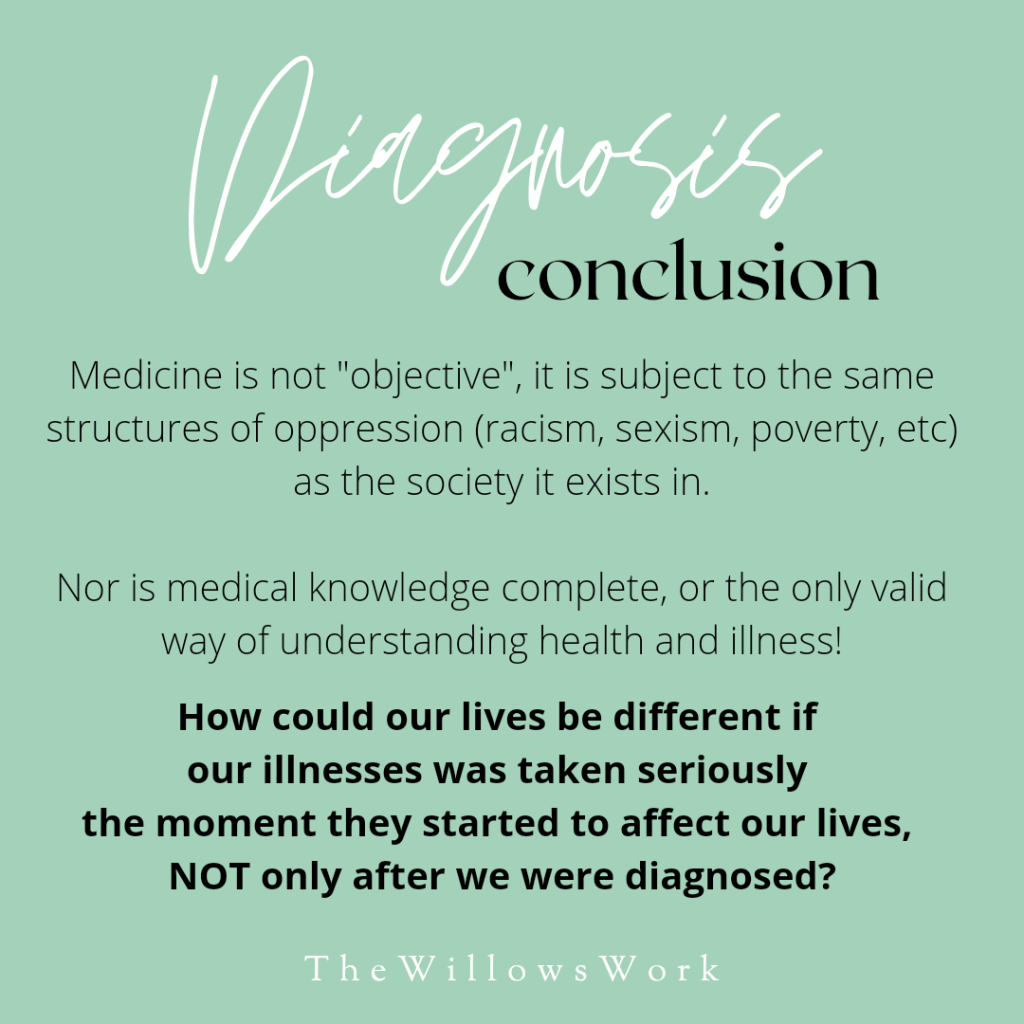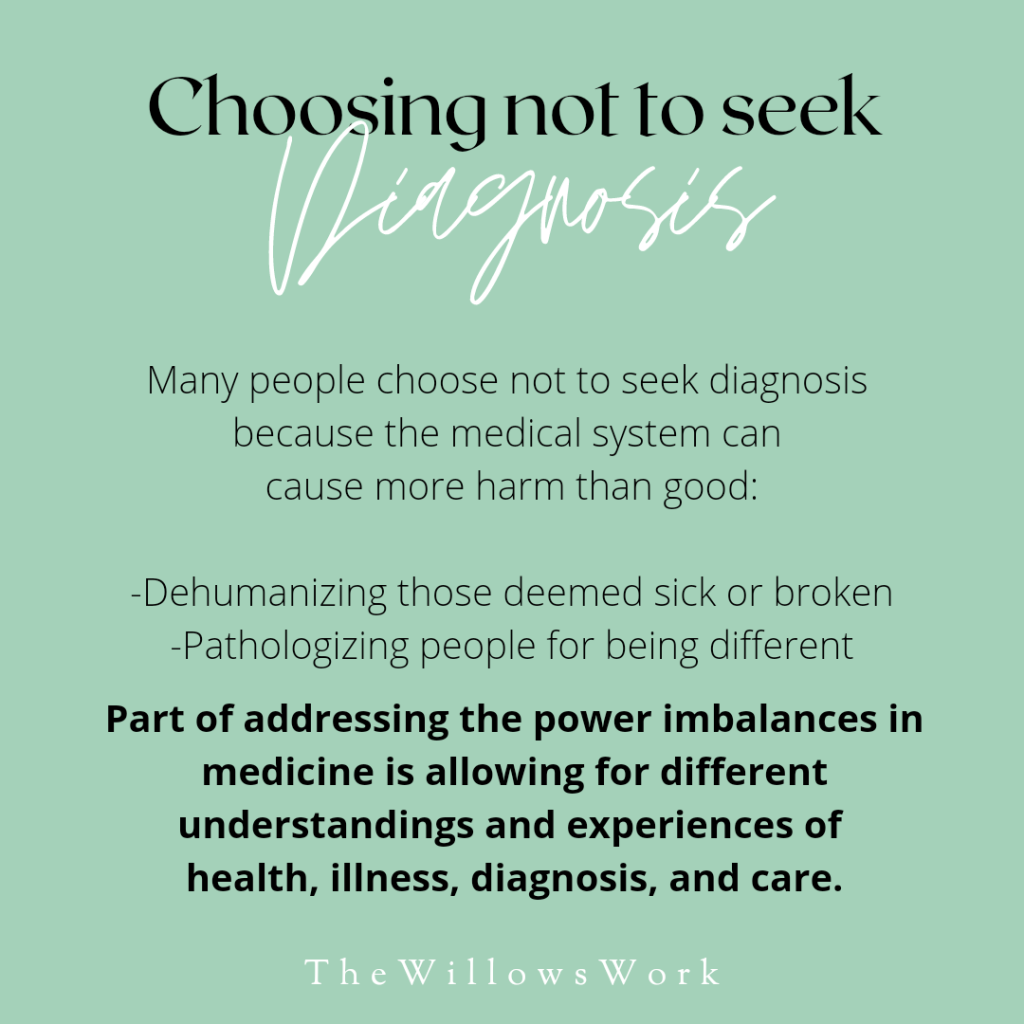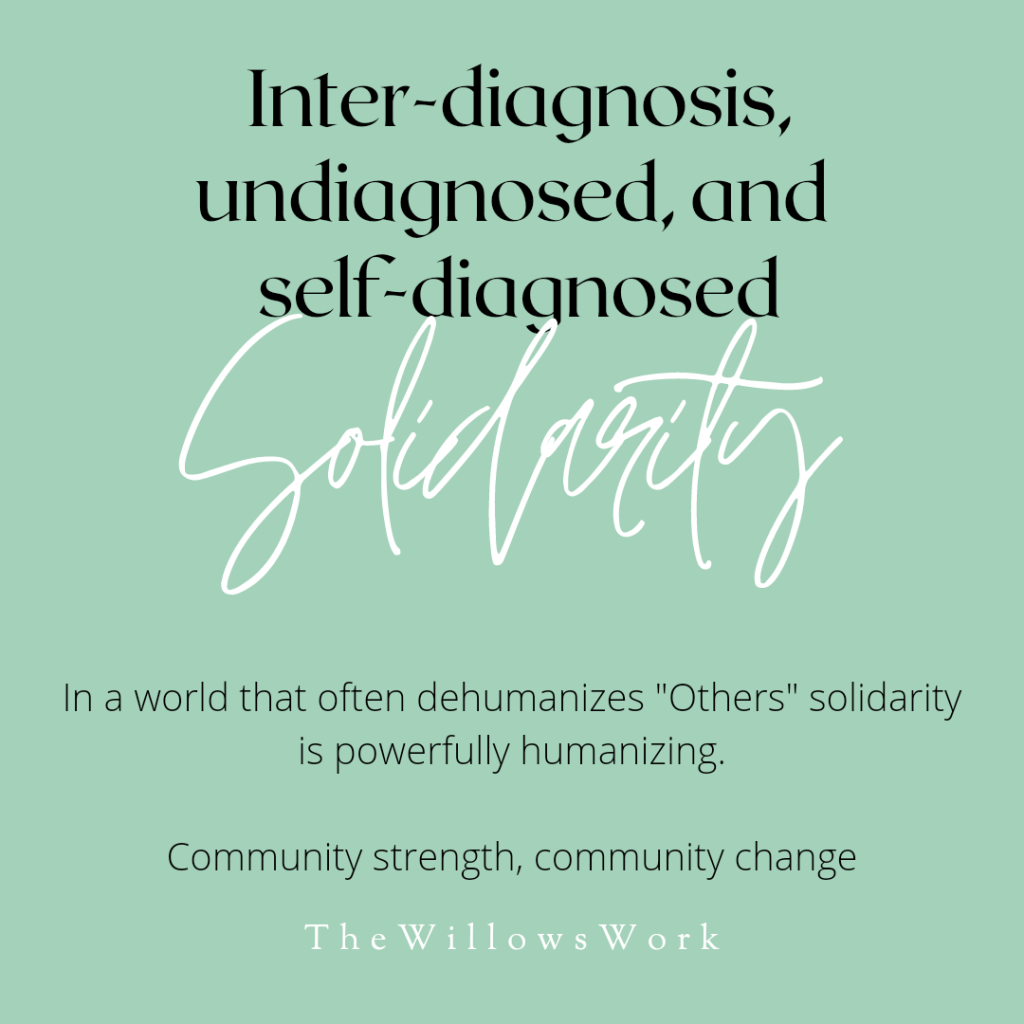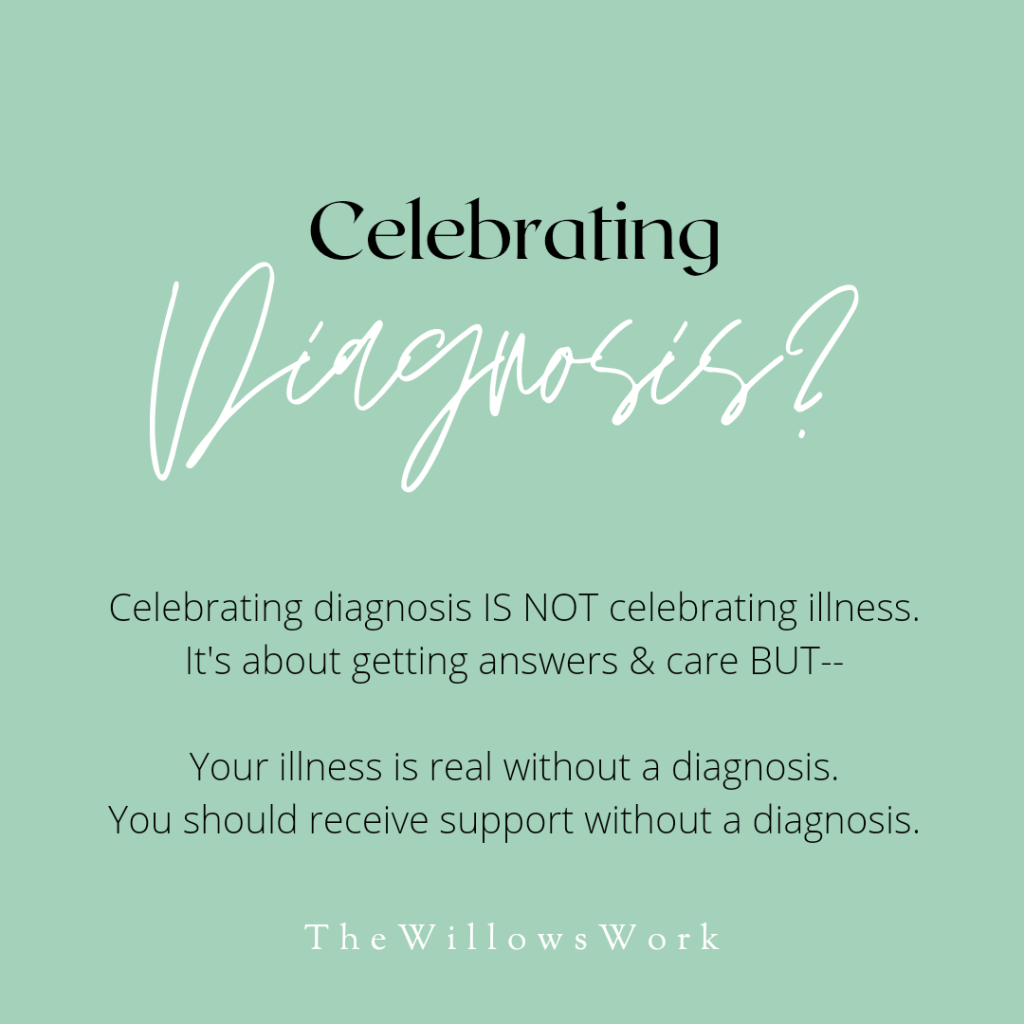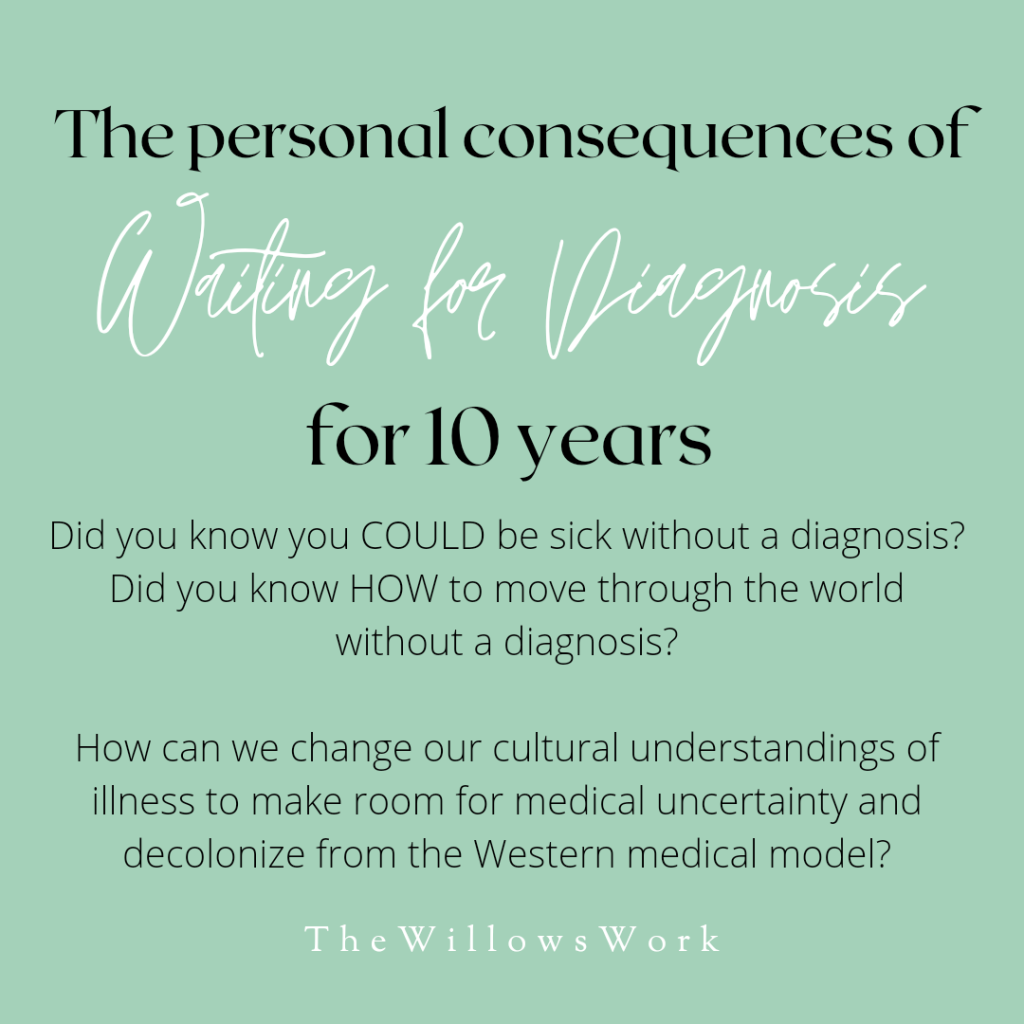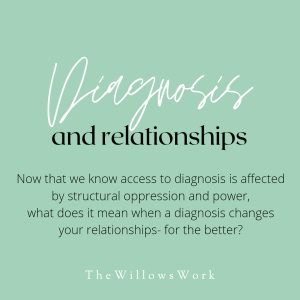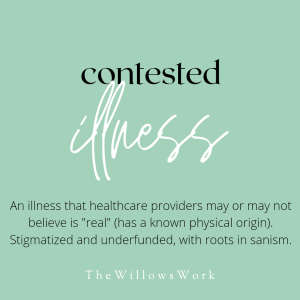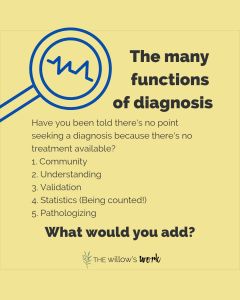
I’ve heard countless stories of folks who are told there’s no point seeking a diagnosis because there’s no treatment available. But there are so many more reasons diagnosis exists.
What other functions of diagnosis would you add?
Community – Often, disability communities are organised by diagnosis. This can be a huge barrier to finding folks who relate to your experiences when you’re undiagnosed! (But the good communities accept people who are exploring or self-diagnosed!)
Understanding – Diagnosis gives us a framework to understand what is happening and what may happen with our bodyminds in the future.
Validation – While the medical model and neoliberalism still rule, diagnosis is key to recognizing that your experiences of illness are real- for yourself and others.
Statistics – Receiving a diagnosis means we’re counted among folks with that illness, which is used to allocate research funding and means we’ll be able to access treatments if they become available in the future.
Pathologizing – The dark flipside of validation, receiving a diagnosis means reading your experiences as “wrong” or “disordered” and understanding them within the medical model- though of course there are so many other ways to understand our experiences than just the medical model. See: neurodivergence and Madness!


